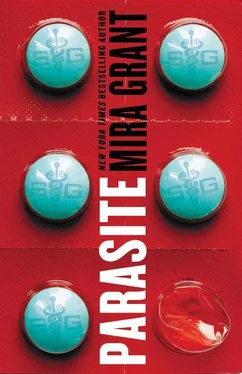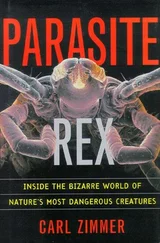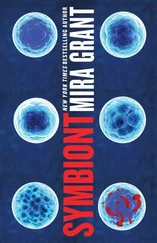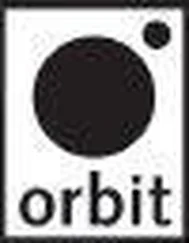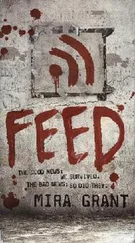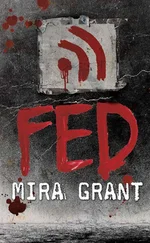Unsteadily, Helen extended her free hand toward the man. Just as unsteadily, he reached out and took it, mashing his fingers around hers with so much force that it had to hurt her. She didn’t react. Now hand-in-hand, the pair turned and resumed their trek toward the door, dragging Helen’s wailing mother in their wake.
They had almost reached the doors when the mall EMTs descended, summoned by someone who reacted better in a crisis than the rest of us. They had no trouble separating the man from the little girl—when they pulled on their joined hands, the pair just let go. They had more trouble getting Helen’s mother to let her go. I think they may have finally threatened to sedate her, because she dropped Helen’s hand and stepped away, pleas fading into sobs.
Joyce and I watched as both man and little girl were strapped to gurneys and wheeled away, vanishing through an EMPLOYEES ONLY door into the back corridors of the mall. A stunned silence hung over everyone who had witnessed the scene. Several people had their phones out and were snapping pictures of the crowd, like the disoriented faces of the witnesses would somehow provide the answers that none of us had on our own.
“I think we should go home now,” said Joyce, in a very small voice.
“Yeah,” I said. “I think you’re right.”
Joyce switched the radio from station to station as she drove, taking her eyes off the road so many times that I was afraid I was going to start hyperventilating. “Traffic, weather, stupid comedy show, traffic, traffic—God!” She slammed her fists against the wheel. “Doesn’t anybody talk about anything important around here?”
“Do we need to pull over so you can calm down?” I asked the question as calmly as I could, but my hands were pressed against the dashboard so hard the skin on my fingers was bleached bloodless white. My stomach felt like it was turning backflips. The only thing stopping me from giving in to the urge to throw up was the knowledge that it probably wouldn’t improve her driving.
“No! I’m fine.” She stabbed the search button with her index finger, sending the radio skipping to the next station.
“—doctors are baffled by a spate of what appears to be a new form of viral sleepwalking. Five victims of this ‘sleeping sickness’ have already been admitted to Bay Area hospitals. While the experts insist there is no evidence that this illness is contagious, it seems fairly obvious that something must be causing it, as none of the known victims have any history of narcolepsy or somnambulism—that’s falling asleep without warning, and walking around while you’re sleeping, for those of us without a medical degree. There is no word yet on whether the Centers for Disease Control—”
I leaned forward and turned the radio off. Joyce yelped.
“I was listening to that!”
“You were getting upset by that,” I corrected. “Let’s get home and talk to Dad. He’ll know if something is really going on, and you won’t wind up scaring yourself half to death before we fully understand the situation.”
Joyce glared. I looked impassively back, trying not to twitch at the fact that she wasn’t paying enough attention to the road. Finally, as I expected, she relented.
“I hate it when you’re reasonable,” she grumbled. “You should be freaking out.”
“You’re freaking out enough for both of us,” I said. “I just want to know what I’m going to be freaking out about before I waste energy freaking out about the wrong things. Conservation of panic is important.”
“Pretty sure we’re not having a panic shortage, Sal.”
“I don’t care. You’re still not turning that back on until we’re home. If you kill us both because you’re too busy being upset at the radio to keep your eyes on the road, I’m never going to speak to you again.”
Joyce glared again before turning and looking resolutely out at the road. I closed my eyes, pressing myself back in my seat, and tried not to think about the cars around us. We passed the rest of the drive that way. I relaxed when I felt the car take the familiar turn into our driveway, and opened my eyes when Joyce turned the engine off.
“I’m sorry,” she said quietly.
“You should be,” I said, before I thought better of it.
“What?” Joyce turned to me, eyes wide. “What did you say?”
“You know I’m not okay with that sort of stuff.”
“I said I was sorry! Don’t freak out on me.”
Somehow, her sheer wounded indignation was the final straw. “Believe me, I’m not freaking out. If I start freaking out, you’ll have to sedate me to get me to stop,” I snapped, and opened the door, barely remembering to undo my seat belt before I stormed away. Joyce could carry her own damn bags. I was done being the helpful big sister for the day.
Mom and Dad were in the living room. They both looked up at the sound of the front door slamming, and for a moment, I saw that flicker of wary unhappiness that I thought of as the tracks of the old Sally—the one whose moods apparently made my panic attacks look like a fair trade in terms of “daughter we can live with.”
“Sal?” said Mom carefully, standing. “Honey, are you okay?”
Somehow, making her look at me like that just made the day worse. I shook my head and walked over to embrace her, pressing my face into her shoulder. Alarmed, she closed her arms around me.
“Honey, where’s Joyce? Was there an accident?”
I shook my head, not lifting it from her shoulder. I heard Dad stand and walk over to us. He didn’t say anything. That was probably for the best. At the moment, I wouldn’t have been able to answer him.
The door banged open again as Joyce came stomping in, dropping her bags with a series of rustles and thuds before she demanded, “Turn on the news!”
“Joyce, what’s going on?” asked Mom. “Why is your sister so upset?”
“There were these people at the mall, I think they were sick.” I lifted my head to see Joyce grabbing the remote off the coffee table. She clicked the TV on, flipping channels until she landed on CNN. They were airing a story about reality-star salaries. She snarled. “Why aren’t they saying anything? I’m going to my room. Maybe the Internet will have a clue.” She whirled and went stomping out of the room. Her bedroom door slammed a few seconds later.
I pulled away from Mom. “So what was that you were saying last week, about how I used to be the dramatic one? Can we have a re-vote on that title?”
“I think that might be a good idea.” Mom looked down the hall toward Joyce’s room. “What happened? Did you two have a fight?”
“If they’d had a fight bad enough that Joyce would be looking for it on CNN, I think we’d be down a daughter, Gail,” said my father reasonably. He was usually the reasonable one. Mom was a lot more like Joyce, only older and slightly less inclined to drag me to the mall when I didn’t want to go. “What happened, Sal?”
I sighed. “I wanted to talk to you about this anyway. See, there was this little girl…”
It didn’t take me long to explain what we’d seen at the mall. Mom and Dad listened without comment until I was done. I shrugged, spreading my hands. “That’s everything. It was weird, and sort of scary, but it really upset Joyce. The way she was driving scared the hell out of me, and it was like she didn’t even care. All she wanted to do was get home and find out what was going on. We were supposed to talk to you, but she didn’t even wait. I don’t get it.”
“She was probably worried about a biochemical attack on the mall,” said my father.
I blinked. Joyce had mentioned something in the air vents…“Dad? Is there something I should know?”
My father—Colonel Alfred Mitchell, United States Army, former director at USAMRIID and current director-slash-lab manager of their San Francisco research center, which is how my entire family wound up with the earliest specialized versions of the SymboGen implant—looked at me for a long moment without saying anything. Finally, he sighed, and said, “We didn’t want to worry you.”
Читать дальше
